Christian Education
Christian Education
Christian Education
top
Christian Education
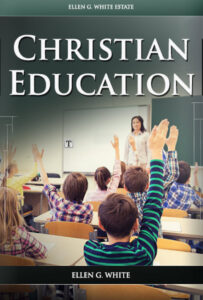
Note to the Reader: Some of the matter in this book has already been printed in permanent form, but scattered through various volumes; some has appeared in different periodicals, while a considerable portion has never been presented to the public before. The book is designed not only for teachers, but also for parents, who should be prepared to direct intelligently the education of their children. The whole subject of Christian ducation is treated from the broadest standpoint, with valuable principles and suggestions applicable to every stage of child development; and it is confidently believed that this little work will prove a blessing, both in a richer personal experience and in an increased ability for service, to every one who will read it thoughtfully. Articles credited Ms. have never been published before. Other articles or extracts are credited to the book or periodical rom which they were taken.
top
Education
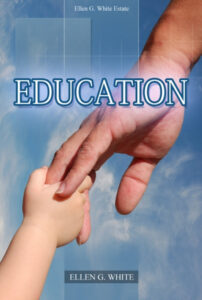
It is rare, indeed, for a book devoted to the subject of education to be read so widely or to endure so well the tests of changing times as has the present work now appearing in this new, popular form. The fundamental principles clearly unfolded in this volume have for many decades made it the handbook of tens of thousands of parents and teachers. Now, to further augment its already wide distribution and reading, it is published as one of the Christian Home Library volumes, but without change in wording or paging. Every person must face the practical realities of life—its opportunities, its esponsibilities, its defeats, and its successes. How he is to meet these experiences, whether he is to become master or victim of circumstances, depends largely upon his preparation to cope with them— is education. True education is well defined as the harmonious development of all the faculties—a full and adequate preparation for this life and the future eternal life. It is in the early years in the home nd in the formal schoolwork that the mind develops, a pattern of living is established, and character is formed. Keenly discerning the relative and lasting values of what constitutes true education in its roadest sense, the author of this book points the way to their realization. An education in which the mental faculties are properly developed is clearly outlined. An education in which the hands are skilled n useful trades is emphasized. An education which recognizes God as the source of all wisdom and understanding is earnestly recommended. The motivating objective of the author in her extensive ritings upon the subject of education was that youth on the threshold of life might be ready to take their place as good citizens, well prepared for the practical experiences of living, fully developed physically, God-fearing, with haracters untarnished and hearts true to principle. This volume is the paramount work in this group of writings in which are set forth principles essential to the understanding of those who guide the youth in the home nd in the school. The writer of these pages was a friend of young men and women. She was for many years in close touch with institutions of learning and was well acquainted with the problems of youth in preparation for heir lifework. Above all, she was endued with more than ordinary knowledge and skill as a writer and speaker. Concerned as it is with great guiding principles, and not with the details of curriculum or the merits of differing ducational systems, the influence of this volume has been world wide, with editions published in a number of the leading languages of other continents. That this new American printing may still more widely disseminate the reat principles of character education is the ardent hope of the publishers and— The Trustees of the Ellen G. White Publications.
top
Fundamentals of Christian-Education
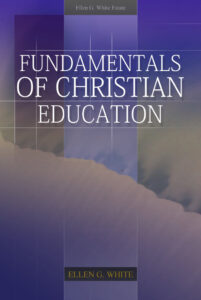
Preface The first collection of articles from the pen of Mrs. E. G. White on the subject of Christian education was published in 1886. The pamphlet containing this instruction was entitled “Selections From the Testimonies Concerning the Subject of Education.” A reprint and enlargement of this booklet was brought out in 1893, under the title “Christian Education.” Later a supplement to “Christian Education” was issued containing additional matter. In 1897, “Special Testimonies on Education” was published. This small volume contained articles of incalculable value to our teachers. The instruction in this book had never appeared before and constituted the major part of the author’s writings on education during the years 1893-1896. In the year 1900 a copyright was issued for Testimonies, Volume VI. This volume ncluded a large section on education and stressed the need of educational reform. The book “Education” was issued in 1903, dealing with the larger problems and principles in school work, while in 1913 Counsels to Teachers, Parents, and Students Regarding Christian Education” first appeared, dealing with the many detail problems that are common in educational practice. The articles in this present volume have been drawn from various sources. They have been selected from “Christian Education,” “Special Testimonies on Education,” “Christian Temperance and Bible Hygiene,” Review and Herald, Signs of the Times, Youth’s Instructor, and Bible Echo. With the exception of one article, “Proper Education,” No selections have been made from any other volumes of the author’s writings already in print. The two manuscript articles, “Suspension of Students” and “Correct School Discipline,” have been inserted by the permission of the Trustees of the Mrs. E. G. White Estate and with the counsel of the General Conference brethren. These two manuscripts were written more than twenty-five years ago and were available at that time to school principals. These two articles should be read together. iii All articles are printed without abridgement and are arranged chronologically. The advantage of reading complete articles arranged in the order in which they were written will have its special appeal owing to the value of a historical setting. The supplementary list of articles at the close of the various chapters, together with the table of contents, will constitute a reasonably complete list of the writings of the author on the subject of Christian Education. This book is sent forth with the hope that it may be of inestimable value to the hundreds of teachers who have not had the privilege of reading this instruction. May it also awaken renewed interest and study by those who may have read it before, and may we all be deeply loved to follow more faithfully in our daily practice the principles so clearly set forth. General Conference Department of Education.
top
Mind Character and Personality Vol 1
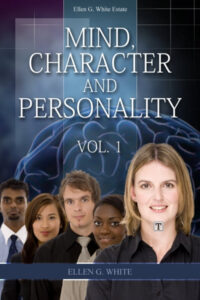
Foreword In Ellen G. White’s lifetime (1827-1915) psychology, the science which treats of the mind and its powers and functions, was in its infancy. Yet there emerges throughout her writings a distinctive philosophy in which guidelines in this science and to mental health are clearly portrayed. The purpose of this compilation is to bring the Ellen G. White statements in this broad, important, and sometimes controversial field together for convenient study. Seventh-day Adventists and others with their conviction that Ellen G. White wrote under the influence of the spirit of God treasure guidance in a field so vital to all humanity at a time when schools of psychological thought are varied and changing.
The soundness of Ellen White’s views in the areas of physiology, nutrition, and education, as well as in other fields, has already been demonstrated. There is no doubt that as research in psychology and mental health progresses, her reputation for setting forth sound psychological principles will be still more firmly established. To the devout Adventist this work, Mind, Character, and Personality, will supply many answers. We are certain that as truth unfolds, the positions taken here will appeal more and more to all thoughtful readers.
In these circumstances the occasional appearance of such expressions as “I saw,” “I was shown,” “I have been instructed,” are not only understood, but are welcomed for the assurance they give that the concepts portrayed originated with Him who shaped the human mind.
In assembling this material in the White Estate offices there has been no attempt to select passages that support views advocated by various authorities in the fields of education and psychology. No preconceived views held by the compilers are represented here. Rather, an effort has been made to allow Ellen White to freely propound her views. This has been accomplished by drawing from the vast store of her published writings, penned through six decades, as they appear in current or out-of-print books, pamphlets, her thousands of periodical articles, and in her voluminous manuscript and correspondence files housed in the White Estate vault.
A large portion of Mind, Character, and Personality presents general guiding principles. This is interspersed and supplemented with materials setting forth practical admonitions and counsels in the setting of the relationship of the teacher and the student, the minister and the parishioner, the physician and the patient, or the parent and the child.
The counsels in scores of instances addressed to an executive, minister, physician, teacher, editor, husband, housewife, or youth, may in their revelation of circumstances and advice given, partake somewhat of the form of case histories. Attention should be directed to the principle involved.
Obviously Ellen White did not write as a psychologist. She did not employ terminology in common usage in the field of psychology today. In fact, the reader must even approach her uses of the words “psychology”, “phrenology,” etc., with understanding. The knowledgeable reader, however, will be deeply impressed by her unusual insight into basic principles of psychology, which these writings evince. The Ellen G. White statements on the various aspects of the mind, its vital place in the human experience, its potentials, and the factors that lead to its optimum functioning as drawn together in a logical sequence yield a choice addition to the Ellen G. White books issued posthumously. These help us to comprehend what man is and to understand his relationship to his earthly environment, to God, and to the universe.
Ten years ago, when work was begun on this compilation, it was thought that it would have its widest appeal to those studying particularly in the field of mental health. Hence, an arrangement has been followed that would make statements readily available to those considering classified areas. The researcher should understand that while an attempt has been made to avoid redundancy as much as possible, a few key statements are repeated in different chapters because the student would expect to find them under different appropriate headings. It is now clear that this compilation is of vital interest to all Adventists and to their friends as well, for all of us are involved in the battle for the mind.
The work of the compilers has been confined to the selection of the materials, placing these in what seemed to be a logical sequence, and supplying the headings, including the side headings that introduce the items chosen. An attempt has been made to include, on the subjects presented, all essential statements penned through the years of Ellen White’s active service, thus taking advantage of approaching a given point from all angles and presenting the widest possible coverage. In so doing there is here and there repetition of thought in general basic lines that the casual reader may find somewhat irritating. The careful student, however, will welcome each phrase that makes a contribution to the subject under discussion. Thus Mind, Character, and Personality is somewhat encyclopedic. Each quotation carries a specific credit to its source in the Ellen G. White materials, making it possible for the reader in many cases to turn to the full original context if desired. In the interest of conserving space, the commonly accepted abbreviations to the E. G. White writings are employed in the source references. A key to these abbreviations follows in the introductory pages. In all cases the date of writing or of first publication is supplied. The original sources are given as primary references, and if currently available in book form, the appropriate current published references appear.
Credits to the Seventh-day Adventist Bible Commentary are to the E. G. White supplementary statements appearing at the close of each of the Commentary Volumes, or in Volume 7a of the Seventh-day Adventist Bible Commentary.
Limitation of space has precluded the inclusion in these volumes of some mind-related topics as “insanity”, etc., for which the reader is referred to the Comprehensive Index to the Writings of Ellen G. White. This compilation has been prepared in the offices of the Ellen G. White Estate under the direction of the Board of Trustees as authorized by Ellen White in her will. Unlike most compilations of Ellen G. White materials it was first released in temporary form under the title of Guidelines to Mental Health, for classroom testing and for critical reading by Adventist educators, psychologists, and psychiatrists. It was the desire of the White Estate to make certain that all known statements relevant to the topics represented were taken into account and that the arrangement of materials was acceptable. The favorable response from the classroom use and of others ensures the place of this work with the many other Ellen G. White books of posthumous publication. As now issued in two parts, it becomes a segment of the popular Christian Home Library.
In its present from it represents somewhat of a revision in the selection of items and an improvement in the order of their appearance.
A chapter titled “Love and Sexuality in the Human Experience” has been added. Additions have rounded out certain chapters, and some deletions have eliminated unnecessary repetition. Paging is continuous through the two parts, and the scripture and subject indexes to the entire work are at the close.
That the clearly traced picture of the great controversy between the forces of good and evil for the control of the human mind may warn and enlighten all readers and provide suggestions and direction for choosing that which will give safe guidance today and ensure a future inheritance in the life to come is the earnest hope of The Board of Trustees of the
Ellen G. White Estate
Washington, D.C.,
March 22, 1977.
top
Mind Character and Personality Vol 2
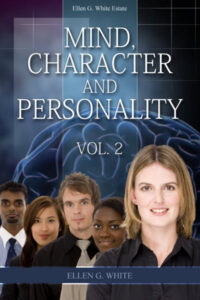
Foreword In Ellen G. White’s lifetime (1827-1915) psychology, the science which treats of the mind and its powers and functions, was in its infancy. Yet there emerges throughout her writings a distinctive philosophy in which guidelines in this science and to mental health are clearly portrayed. The purpose of this compilation is to bring the Ellen G. White statements in this broad, important, and sometimes controversial field together for convenient study. Seventh-day Adventists and others with their conviction that Ellen G. White wrote under the influence of the spirit of God treasure guidance in a field so vital to all humanity at a time when schools of psychological thought are varied and changing.
The soundness of Ellen White’s views in the areas of physiology, nutrition, and education, as well as in other fields, has already been demonstrated. There is no doubt that as research in psychology and mental health progresses, her reputation for setting forth sound psychological principles will be still more firmly established. To the devout Adventist this work, Mind, Character, and Personality, will supply many answers. We are certain that as truth unfolds, the positions taken here will appeal more and more to all thoughtful readers.
In these circumstances the occasional appearance of such expressions as “I saw,” “I was shown,” “I have been instructed,” are not only understood, but are welcomed for the assurance they give that the concepts portrayed originated with Him who shaped the human mind.
In assembling this material in the White Estate offices there has been no attempt to select passages that support views advocated by various authorities in the fields of education and psychology. No preconceived views held by the compilers are represented here. Rather, an effort has been made to allow Ellen White to freely propound her views. This has been accomplished by drawing from the vast store of her published writings, penned through six decades, as they appear in current or out-of-print books, pamphlets, her thousands of periodical articles, and in her voluminous manuscript and correspondence files housed in the White Estate vault.
A large portion of Mind, Character, and Personality presents general guiding principles. This is interspersed and supplemented with materials setting forth practical admonitions and counsels in the setting of the relationship of the teacher and the student, the minister and the parishioner, the physician and the patient, or the parent and the child.
The counsels in scores of instances addressed to an executive, minister, physician, teacher, editor, husband, housewife, or youth, may in their revelation of circumstances and advice given, partake somewhat of the form of case histories. Attention should be directed to the principle involved.
Obviously Ellen White did not write as a psychologist. She did not employ terminology in common usage in the field of psychology today. In fact, the reader must even approach her uses of the words “psychology”, “phrenology,” etc., with understanding. The knowledgeable reader, however, will be deeply impressed by her unusual insight into basic principles of psychology, which these writings evince. The Ellen G. White statements on the various aspects of the mind, its vital place in the human experience, its potentials, and the factors that lead to its optimum functioning as drawn together in a logical sequence yield a choice addition to the Ellen G. White books issued posthumously. These help us to comprehend what man is and to understand his relationship to his earthly environment, to God, and to the universe.
Ten years ago, when work was begun on this compilation, it was thought that it would have its widest appeal to those studying particularly in the field of mental health. Hence, an arrangement has been followed that would make statements readily available to those considering classified areas. The researcher should understand that while an attempt has been made to avoid redundancy as much as possible, a few key statements are repeated in different chapters because the student would expect to find them under different appropriate headings. It is now clear that this compilation is of vital interest to all Adventists and to their friends as well, for all of us are involved in the battle for the mind.
The work of the compilers has been confined to the selection of the materials, placing these in what seemed to be a logical sequence, and supplying the headings, including the side headings that introduce the items chosen. An attempt has been made to include, on the subjects presented, all essential statements penned through the years of Ellen White’s active service, thus taking advantage of approaching a given point from all angles and presenting the widest possible coverage. In so doing there is here and there repetition of thought in general basic lines that the casual reader may find somewhat irritating. The careful student, however, will welcome each phrase that makes a contribution to the subject under discussion. Thus Mind, Character, and Personality is somewhat encyclopedic. Each quotation carries a specific credit to its source in the Ellen G. White materials, making it possible for the reader in many cases to turn to the full original context if desired. In the interest of conserving space, the commonly accepted abbreviations to the E. G. White writings are employed in the source references. A key to these abbreviations follows in the introductory pages. In all cases the date of writing or of first publication is supplied. The original sources are given as primary references, and if currently available in book form, the appropriate current published references appear.
Credits to the Seventh-day Adventist Bible Commentary are to the E. G. White supplementary statements appearing at the close of each of the Commentary Volumes, or in Volume 7a of the Seventh-day Adventist Bible Commentary.
Limitation of space has precluded the inclusion in these volumes of some mind-related topics as “insanity”, etc., for which the reader is referred to the Comprehensive Index to the Writings of Ellen G. White. This compilation has been prepared in the offices of the Ellen G. White Estate under the direction of the Board of Trustees as authorized by Ellen White in her will. Unlike most compilations of Ellen G. White materials it was first released in temporary form under the title of Guidelines to Mental Health, for classroom testing and for critical reading by Adventist educators, psychologists, and psychiatrists. It was the desire of the White Estate to make certain that all known statements relevant to the topics represented were taken into account and that the arrangement of materials was acceptable. The favorable response from the classroom use and of others ensures the place of this work with the many other Ellen G. White books of posthumous publication. As now issued in two parts, it becomes a segment of the popular Christian Home Library.
In its present from it represents somewhat of a revision in the selection of items and an improvement in the order of their appearance.
A chapter titled “Love and Sexuality in the Human Experience” has been added. Additions have rounded out certain chapters, and some deletions have eliminated unnecessary repetition. Paging is continuous through the two parts, and the scripture and subject indexes to the entire work are at the close.
That the clearly traced picture of the great controversy between the forces of good and evil for the control of the human mind may warn and enlighten all readers and provide suggestions and direction for choosing that which will give safe guidance today and ensure a future inheritance in the life to come is the earnest hope of The Board of Trustees of the
Ellen G. White Estate
Washington, D.C.,
March 22, 1977.
top
Special Testimonies on Education
A large part of the instruction contained in this book has not appeared in print before. It is now published in this form in order that the light which has been given through the Spirit of Prophecy, since 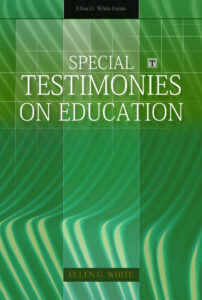 “Christian Education” was issued, may be available for all. The date of each article is given, as far as possible, and all matter not otherwise credited is from the original manuscript.
“Christian Education” was issued, may be available for all. The date of each article is given, as far as possible, and all matter not otherwise credited is from the original manuscript.
top
True Education
Early in 1903 Ellen G. White published the book Education. It was widely circulated and read with appreciation. For decades, the fundamental principles clearly unfolded made it the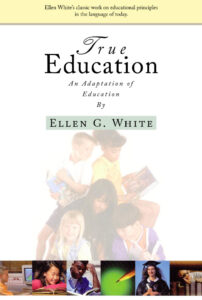 handbook of tens of thousands of parents and teachers. {TEd 5.1}
handbook of tens of thousands of parents and teachers. {TEd 5.1}
![]()

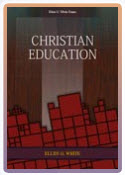
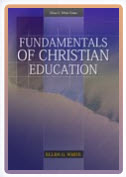

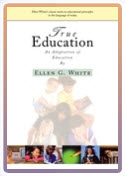
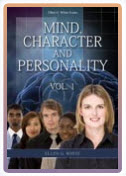
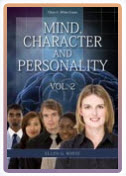
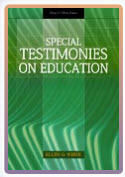

 In Chapter Four of Love Wins, Bell criticizes some statements of faith that he has taken from evangelical church websites that reflect Jesus’ teachings on Hell: “The unsaved will be separated forever from God in hell.” After giving a number of examples with which he feels uncomfortable, Bells states,
In Chapter Four of Love Wins, Bell criticizes some statements of faith that he has taken from evangelical church websites that reflect Jesus’ teachings on Hell: “The unsaved will be separated forever from God in hell.” After giving a number of examples with which he feels uncomfortable, Bells states, 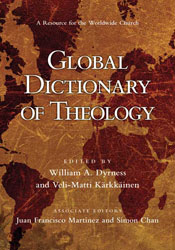 The emergent-friendly, Global Dictionary of Theology, makes a distinction between ‘Hopeful Universalism’ and ‘Convinced Universalism’:
The emergent-friendly, Global Dictionary of Theology, makes a distinction between ‘Hopeful Universalism’ and ‘Convinced Universalism’: Indeed, in the very preface of Love Wins, Bell contradicts Jesus’ teaching that few would actually be saved. Bell writes:
Indeed, in the very preface of Love Wins, Bell contradicts Jesus’ teaching that few would actually be saved. Bell writes: It is a sobering thought that Jesus went on to state in the verses immediately following His teaching on the narrow and broad roads, that false prophets would come in sheep’s clothing (Matthew 7:15-21). Such false prophets stand at the cross roads between the broad and narrow road, claiming to represent Christ, while pointing their followers toward the broad road that leads destruction, assuring them that it eventually leads to Heaven. Consider this for a minute. Isn’t this exactly what Rob Bell is doing?
It is a sobering thought that Jesus went on to state in the verses immediately following His teaching on the narrow and broad roads, that false prophets would come in sheep’s clothing (Matthew 7:15-21). Such false prophets stand at the cross roads between the broad and narrow road, claiming to represent Christ, while pointing their followers toward the broad road that leads destruction, assuring them that it eventually leads to Heaven. Consider this for a minute. Isn’t this exactly what Rob Bell is doing? Rob Bell not only redefines Hell by teaching that it will only be a temporary abode for those who want to leave later, but he redefines Hell by claiming that it is not so much about the after life, but it’s about what you make of the life here and now. In his book, Velvet Elvis, Bell had already stated this position:
Rob Bell not only redefines Hell by teaching that it will only be a temporary abode for those who want to leave later, but he redefines Hell by claiming that it is not so much about the after life, but it’s about what you make of the life here and now. In his book, Velvet Elvis, Bell had already stated this position: Rob Bell takes every possible liberty to deny reality and to either explain Hell away or get everyone into Heaven, regardless of his or her rejection of God and the Gospel. Bell not only empties Hell of God’s holy wrath, he creates an exit door from the inside out and claims that Hell is merely what we make it. He also claims that most of the imagery of future judgments in Hell were fulfilled on earth in AD 70 (p. 81).
Rob Bell takes every possible liberty to deny reality and to either explain Hell away or get everyone into Heaven, regardless of his or her rejection of God and the Gospel. Bell not only empties Hell of God’s holy wrath, he creates an exit door from the inside out and claims that Hell is merely what we make it. He also claims that most of the imagery of future judgments in Hell were fulfilled on earth in AD 70 (p. 81).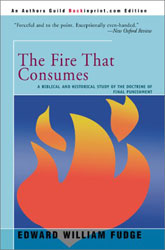 By claiming that the unrepentant wicked will have a chance to get to Heaven from Hell, Rob Bell has gone beyond that of Edward W. Fudge, who states in The Fire That Consumes,
By claiming that the unrepentant wicked will have a chance to get to Heaven from Hell, Rob Bell has gone beyond that of Edward W. Fudge, who states in The Fire That Consumes, 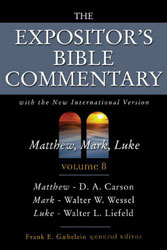 Biblical Scholar D.A. Carson, commenting on Matthew 25:46, says :
Biblical Scholar D.A. Carson, commenting on Matthew 25:46, says :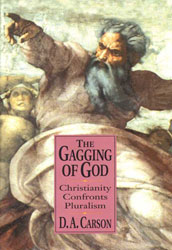 “What is hard to prove, but seems to me probable, is that one reason why the conscious punishment of hell is ongoing is because sin is ongoing.”
“What is hard to prove, but seems to me probable, is that one reason why the conscious punishment of hell is ongoing is because sin is ongoing.” There is hardly any wiggle room for a second chance in hell in these passages or anywhere in Scripture. Bell would have his readers believe of the book of Revelation that
There is hardly any wiggle room for a second chance in hell in these passages or anywhere in Scripture. Bell would have his readers believe of the book of Revelation that  May God give us the grace, in these times of apostasy, to hold fast to Jesus’ teachings and remain faithful to our loving and Holy Lord to the end. May God deliver His bride from the cotton candy Christianity that is endemic in Emergent Churches and among false prophets who lead the lost into believing they can put off repentance until after death.
May God give us the grace, in these times of apostasy, to hold fast to Jesus’ teachings and remain faithful to our loving and Holy Lord to the end. May God deliver His bride from the cotton candy Christianity that is endemic in Emergent Churches and among false prophets who lead the lost into believing they can put off repentance until after death.